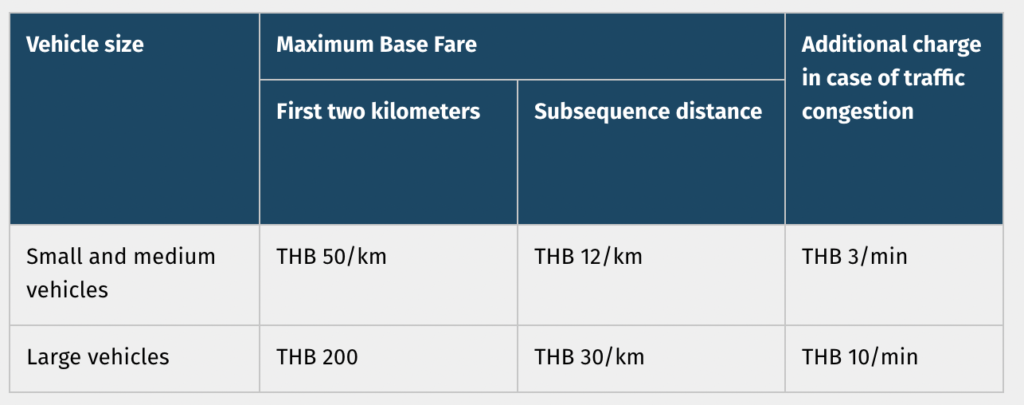Ride-hailing service, which brings convenience and improves the quality of life for people, has continued to gain popularity in Thailand. As ride-hailing service business has significant impact on people’s life in this digital era, Thai authorities view it necessary to promote this industry as well as at the same time regulate the sector to protect users’ benefits.
In mid 2021, the Ministry of Transport of Thailand issued the Ministerial Regulation on Ride-Hailing Vehicles Via Electronic System B.E. 2564 (2021) (the “MR on Ride-Hailing”) aiming to regulate the ride-hailing service business and promote sharing economy.
The MR on Rider-Hailing was published in the Government Gazette on 23 June 2021 and subsequently came into force on the same day. Subordinate regulations were also issued to make the implementation and enforcement of the MR on Ride-Hailing more effective.
The MR on Ride-Hailing and its subordinate regulations will significantly impact drivers and electronic system operators (the application or platform providers) in four major aspects, summarised as follows:
- drivers are now required to register their cars to the competent authorities;
- electronic system operators (the application or platform providers) are presently required to be approved and verified by the competent authorities;
- cars used for the ride-hailing service must meet the required specifications; and
- ride-hailing service fees are regulated.
Drivers’ Registration
Following the enforcement of the MR on Ride-Hailing, drivers are required to register their cars that will be used for ride-hailing service with the Department of Land Transport (the “DLT”).
By the virtue of the MR on Ride-Hailing, the DLT issued the Ordinance of the Department of Land Transport on Registration and Taxation for Service Vehicles via Electronic Systems B.E. 2564 (2021) which became effective on 29 October 2021 setting out details relating to drivers’ registration.
According to the regulations, each person is allowed to register only one car and he/she must be the owner of the car. This will have a significant impact on existing drivers as most of them do not have ownership over their leased cars.
Electronic System Registration
Based on the MR on Ride-Hailing, the electronic systems are required to be approved and verified by the DLT.
The Notification of the Department of Land Transport on Stipulating Specifications and Operation of Electronic Systems and Criteria, Methods, and Conditions Approving Electronic Systems and Electronic System Providers for Service Vehicles via Electronic Systems B.E. 2564 (2021) was issued to set out details of electronic system registration, including the qualifications of the electronic system operators.
Amongst other qualifications, the electronic system operators must be a legal entity registered in Thailand (i.e. a private company limited) with a least not less than THB 5 million registered capital. These regulations will limit the new electronic system operators with limited investment budget from entering this industry.
Car Specifications
Cars registered with the DLT must meet the required specifications. Vehicles are divided into the following categories:
- small vehicles – engine power from 50-90 kilowatts;
- mid-sized vehicles – engine power from 91-120 kilowatts;
- full-sized vehicles – engine power over 120 kilowatts; and
- electric vehicles – maximum speed of no less than 90 km per hour.
Ride-Hailing Service Fare Rate
Under the MR on Ride-Hailing, ride-hailing service fare rates are now regulated. The MR on Ride-Hailing empowers the minister of the Ministry of Transport to prescribe service fares. The table below summarises the fares:

Fees must be shown to the passenger before the service can be provided. Further, electronic system operators are not allowed to do any marketing promotion where the collection of service fares is lower than the fare rates prescribed above.

For more information, please contact:
Threenuch Bunruangthaworn, Managing Director | ZICO Insights Law
threenuch@zicolaw.com





